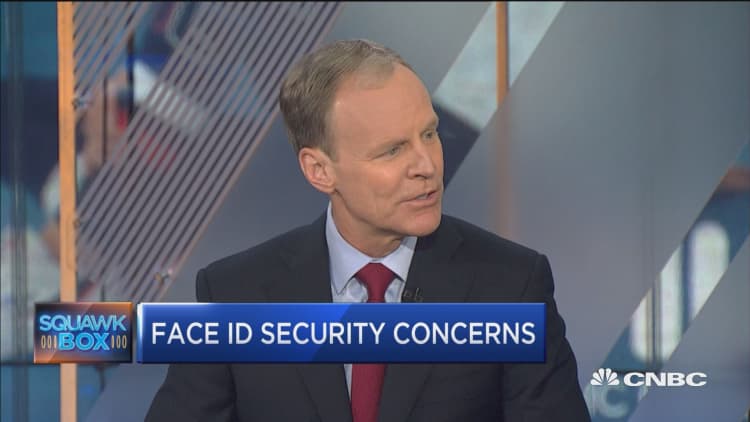
Facial recognition technology, such as in Apple's new high-end iPhone X, is more secure than other authentication systems but it isn't perfect, a cybersecurity expert warned on Friday.
"None of these systems are flawless. And you'll see it with Apple. They can be defeated. Somebody will do that," said Tom Grissen, CEO of biometrics firm Daon, whose clients include USAA and MasterCard.
Tech "is trying to strive for perfection [and] all these systems are enhancing security but they're not going to solve it," he said in an interview on "Squawk Box."
At its big product event on Tuesday, Apple showed off the iPhone X's ability to unlock with facial recognition rather than a fingerprint or pass code. Some Android devices already offer this, but Apple says it's adding sensors to improve performance.
Still, that didn't keep Sen. Al Franken from writing a letter to Apple about his concerns about its privacy and security.
Franken said he is "encouraged by the steps that Apple states it has taken to implement the system responsibly," but he questioned "whether the technology will perform equally well on different groups of people."
He was also concerned that "Apple itself could use the data to benefit other sectors of its business, sell it to third parties for surveillance purposes, or receive law enforcement requests to access it facial-recognition system."
Grissen said the technology is popular. "Consumers love them and they enhance our security," he said. "If a consumer has a technology they don't like, they won't adopt it."
—The Associated Press contributed to this report.


